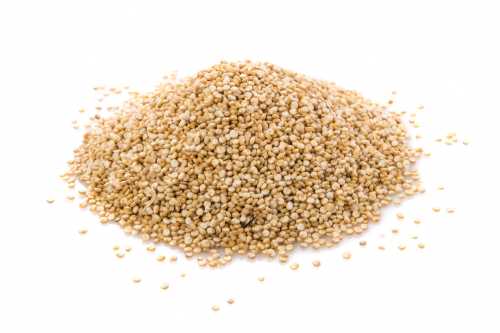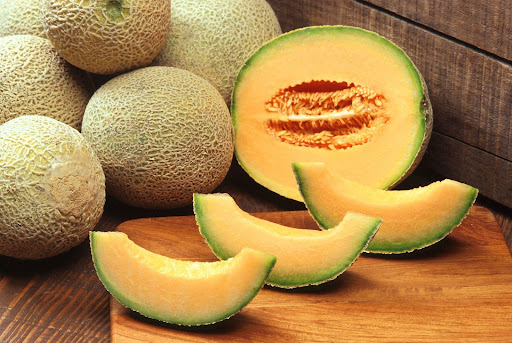Diabetes is a common condition in which the body’s capacity to produce and respond to insulin is impaired. This illness causes high blood sugar, among other problems (glucose). Medications to assist regulate blood sugar are frequently used in treatment.
Black seed oil is one therapy option that many have inquired about. Can persons with diabetes use black seed oil?
Find out in this article, and be sure to read it to the end.
What is Black seed oil?
Black seed oil comes from the Nigella sativa plant, which is native to Eastern Europe and Western Asia. Black seed oil is a natural medicine used to cure a variety of ailments, including back problems, headaches, inflammation, high blood pressure, and infections.
It also contains antioxidants and other bioactive chemicals, which provide a broad list of science-backed health and cosmetic advantages. For thousands of years, black seed has been used to manufacture medicine.
Is it possible to use black seed oil to cure diabetes?
One of the active chemicals in black seed oil, thymoquinone, has hypoglycemic characteristics, which means it decreases blood sugar levels. Black seed oil supplementation may offer potential benefits for diabetics, according to preliminary studies.
Alternative and complementary therapies that can aid with blood sugar correction are still being researched. Some of that study is focused on black seed oil. It has produced various favorable outcomes, including:
A 2013 study found that high dosages of N. sativa (Black seed) oil significantly increased serum insulin levels in diabetic rats, indicating that it has a therapeutic impact.
A 2014 study showed that adding turmeric and black seed to diabetic rats’ diets lowered blood glucose, water intake, and food intake.
Also, according to a 2017 study, black cumin seed oil increased insulin production, decreased insulin resistance, stimulated cellular activity, and decreased intestinal insulin absorption over time, lowering HbA1c (average blood glucose levels).
According to a 2017 assessment of clinical trials, the hypoglycemic impact of N. sativa (Black seed) has been adequately explored and understood, together with other effects, to allow for the next phase of clinical trials or medication development.
According to a 2016 review published in the British Journal of Pharmaceutical Research, the significance of N. sativa seeds in diabetes treatment is critical (enhancing insulin production, glucose tolerance, and beta cell proliferation).
The review suggested that the seeds could be useful in the treatment of diabetes problems such as nephropathy, neuropathy, and atherosclerosis.
How can black seed oil help with diabetes?
Here’s how black seed oil can help with diabetes.
Cholesterol levels are improved with pure black seed oil
Diabetes lowers good cholesterol (or high-density lipoprotein) and raises bad cholesterol (low-density lipoprotein) in the body, which is one of the most prevalent side effects.
Bad cholesterol can induce a buildup of cholesterol in the arteries, raising the risk of heart disease and stroke.
Black seeds, particularly pure black seed oil, are high in mono and polyunsaturated fatty acids, which are thought to be necessary for proper physiological function. These necessary fatty acids help to raise blood levels of healthy cholesterol.
Inflammation is reduced by black seed oil.
Internal inflammation has been linked to an increased risk of Type 2 diabetes, according to new research. The patient becomes insulin resistant as diabetes progresses. Reduced insulin sensitivity can also lead to internal inflammation, which can exacerbate insulin resistance.
Because black seed oil is filled with natural anti-inflammatory chemicals and antioxidants, using it for diabetes can also aid on this front. Internal swelling and damage produced by free radicals can be reduced by these substances.
Blood pressure is maintained by black cumin seed oil
The body needs potassium, an essential element because it is crucial for blood pressure regulation. Potassium levels in diabetics tend to drop, causing blood pressure deflections.
Because black cumin seeds are high in potassium, they can help diabetic people avoid potassium deficiency and regulate blood pressure.
Weight loss and black seed oil
Diabetes may be associated with obesity. Weight loss is often required of people with type 2 diabetes since it aids in diabetes management.
Black seed oil can help you lose weight by suppressing your appetite and improving your digestion. It can also help you burn calories by increasing your metabolism.
Blood sugar levels are controlled by black seed oil.
Researchers and diabetic patients alike have been drawn to black seed oil’s hypoglycemic properties. According to research, black seed oil can help prevent the formation of diabetes and minimize the severity of the disease by lowering blood glucose levels.
Black seed oil’s hypoglycemic properties can help both Type 1 and Type 2 diabetics, especially when pure black seed oil is used.
Black seed oil may aid Type 1 diabetes management by reducing damage to insulin-producing cells in the pancreas. Also, because it improves the sensitivity of insulin receptors, black seed oil may be beneficial to Type 2 diabetes.
Black seed oil is beneficial to one’s overall health.
Black cumin seeds also contain trace levels of important substances that our bodies require to perform fundamental processes and improve immunity.
To reap the benefits of these substances, diabetic individuals, particularly those with Type 2 diabetes, can consume black cumin seeds or black seed oil in their diet.
Black seed oil is high in iron and vitamin C, both of which help the immune system. Supplementing with black cumin can help diabetic patients improve their overall health.
Health benefits of black seed oil
Black seed oil has other health benefits that can help people other than diabetics. Below are some of the health benefits of black seed oil.
Aids in wound healing
The chemical thymoquinone found in black seed oil has been researched for its ability to stimulate tissue growth and promote wound healing.
May support hair health
Because of its antibacterial and antioxidant characteristics, black seed oil is frequently used in hair care products such as hair masks and shampoos.
Acne may be reduced.
According to certain studies, black seed oil may help with skin disorders including acne. This could be because black seed oil has antibacterial and anti-inflammatory effects.
Summary
Thymoquinone, one of the active compounds in black seed oil, has hypoglycemic properties, which means it lowers blood sugar levels. According to preliminary research, black seed oil supplementation may have benefits for diabetes.
Studies on black seed oil as a potential diabetes therapy have yielded promising findings. Large-scale clinical trials are still needed to completely understand its safety for persons with other health problems (including diabetes) and to examine how black seed oil interacts with other drugs.







Leave a Comment